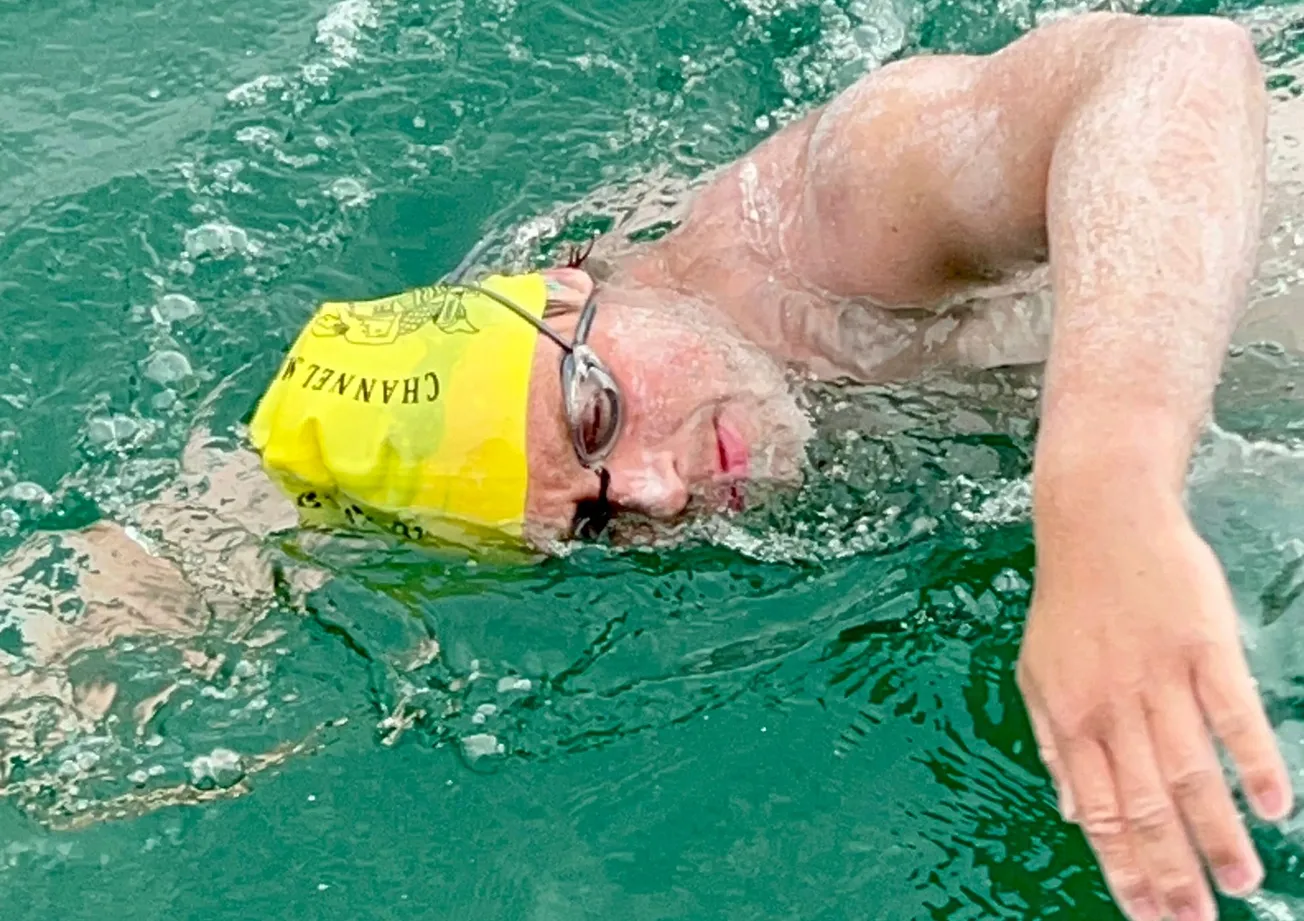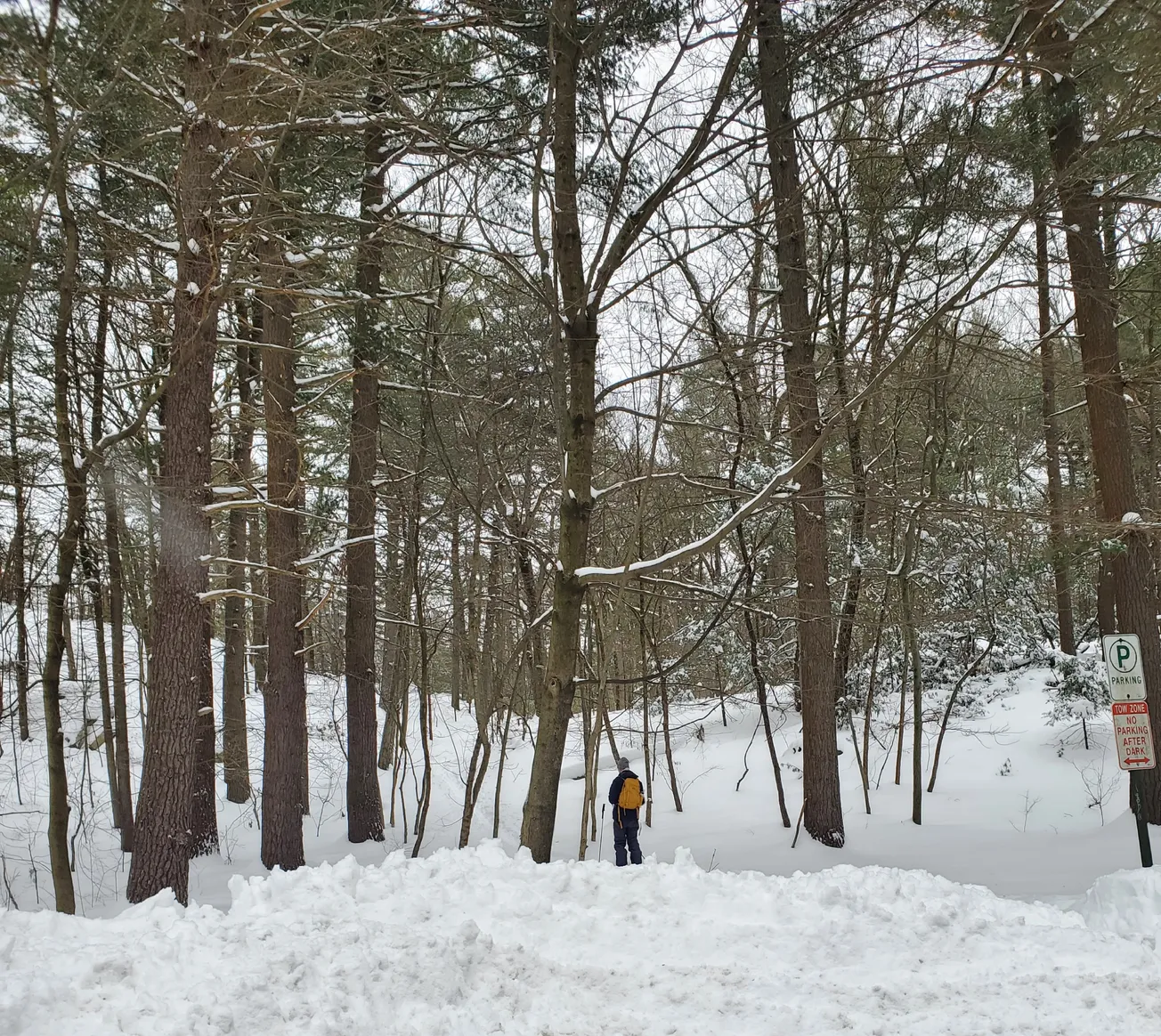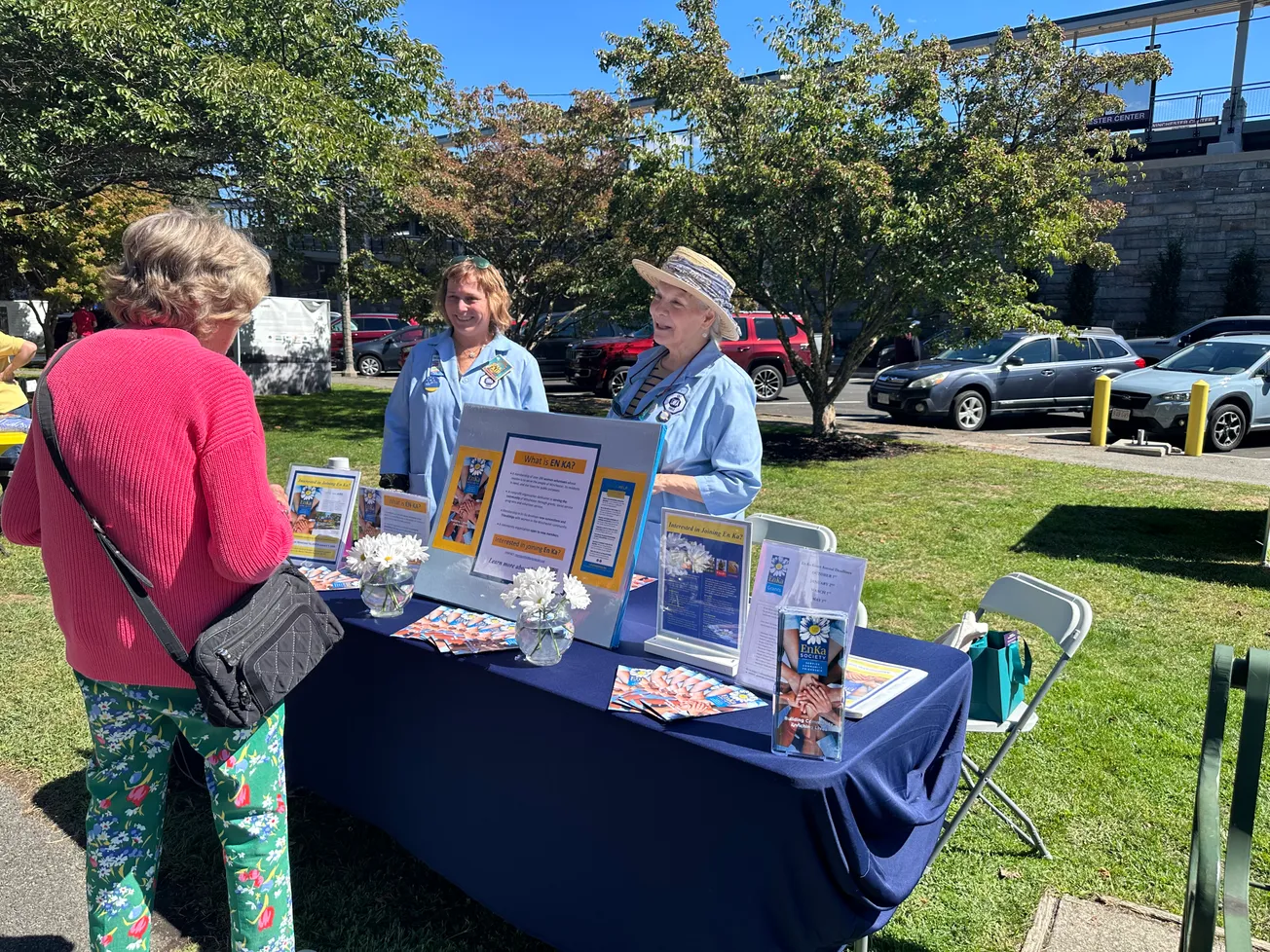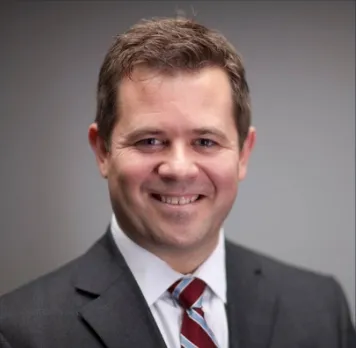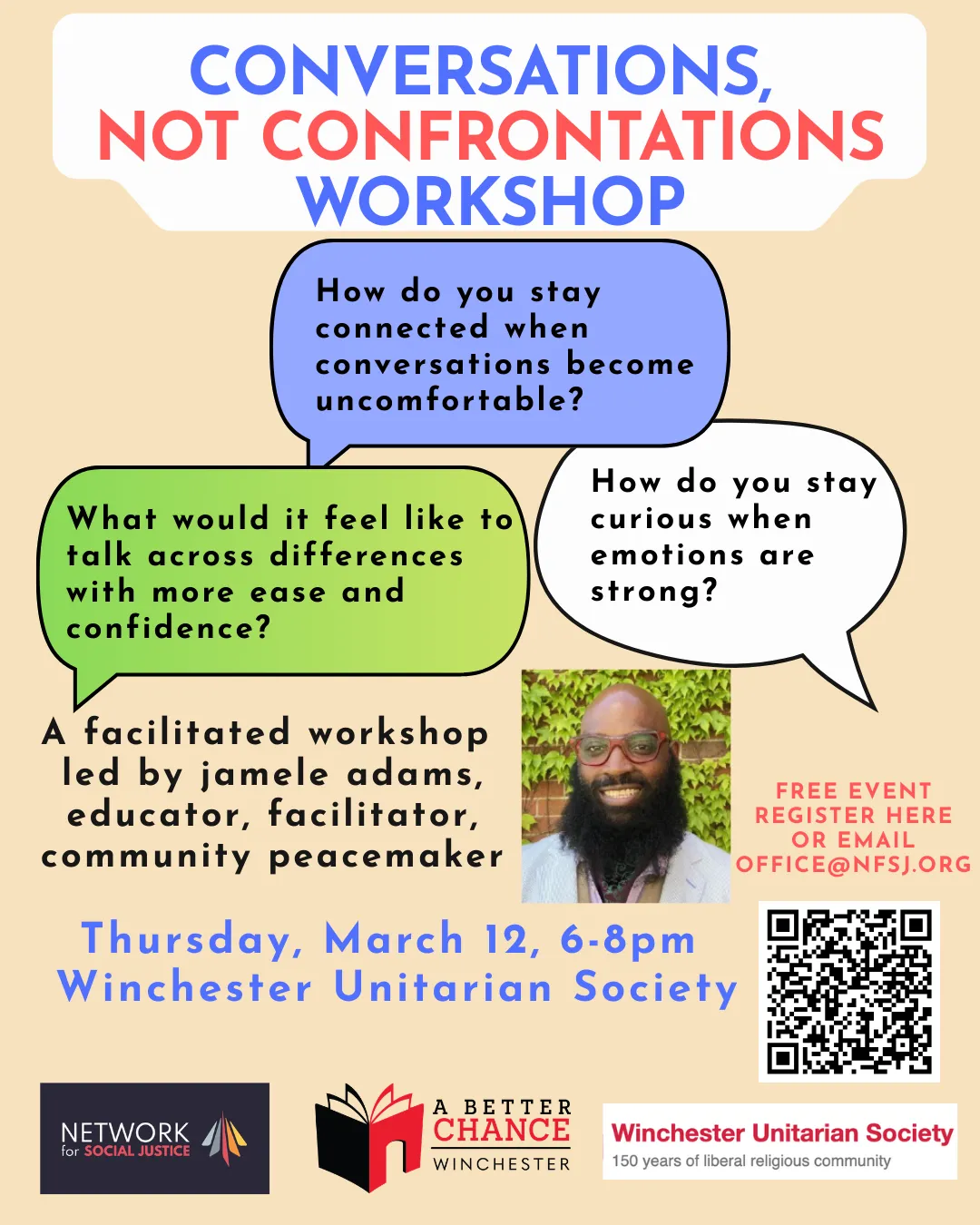Table of Contents
Sean Bannon learned to swim at the Woburn Boys & Girls Club before he could remember, but nobody in his family shared his affinity for the water. His parents don’t swim. His three younger siblings dabbled, but never pursued it seriously.
Yet at 23, Bannon has joined one of the world’s most exclusive athletic clubs: fewer than 400 people have completed the Triple Crown of Open Water Swimming.
The achievement requires swimming three of the world’s most grueling marathon routes — the English Channel, Catalina Channel and a circumnavigation of Manhattan Island — totaling nearly 70 miles of cold, unpredictable saltwater.
Bannon finished his final leg Aug. 27, swimming 20 miles from Catalina Island to the California mainland in 11 hours. He had already conquered the English Channel in June (15 hours across 21 miles) and Manhattan Island in July (28.5 miles in eight hours, entirely overnight).
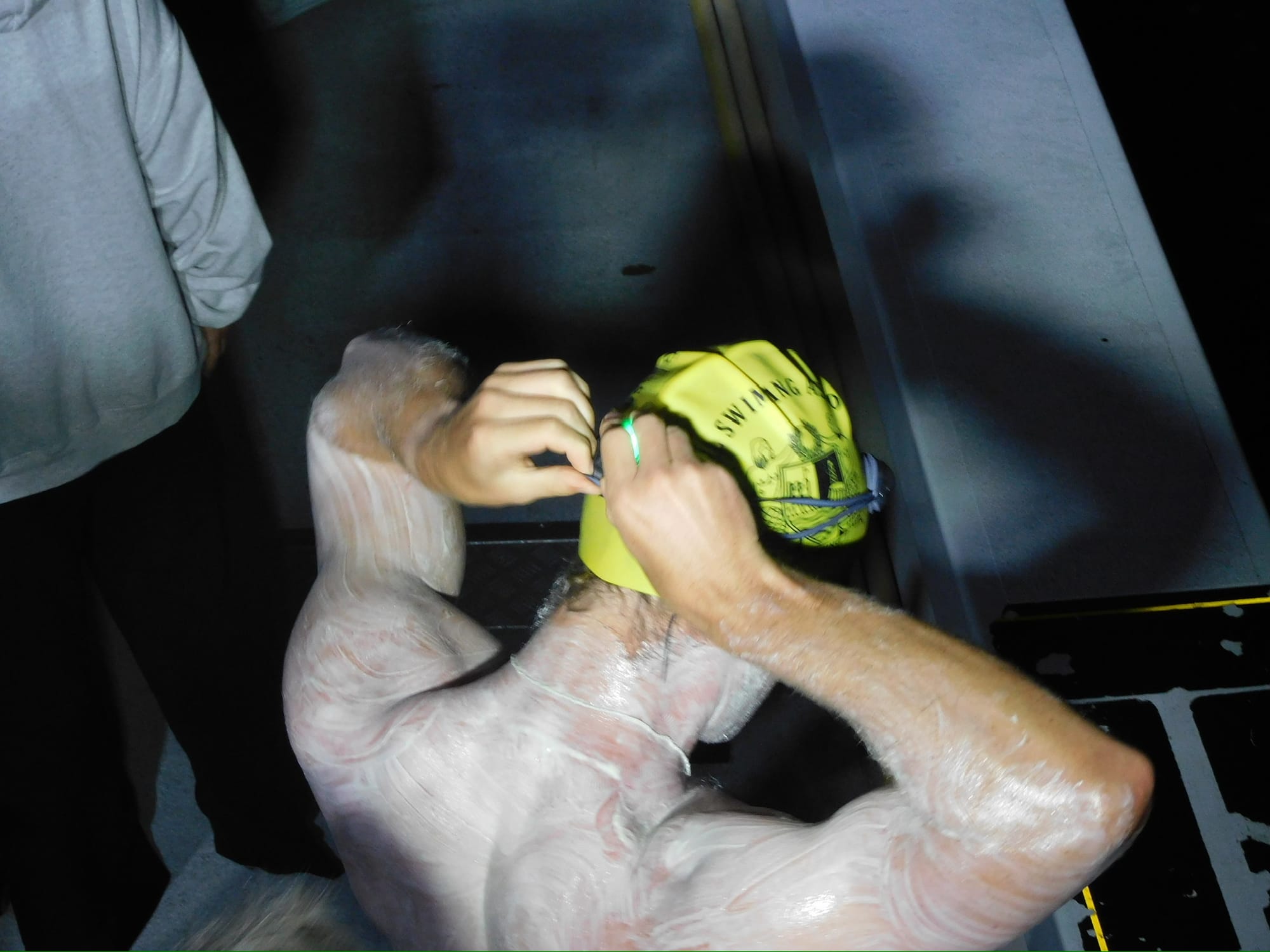
The Triple Crown traces its roots to 1987, when British swimmer Alison Streeter became the first to complete all three routes. The concept gained momentum in the late 2000s when Steven Munatones of the World Open Water Swimming Association formalized the designation and began tracking finishers.
As of late 2023, only 366 swimmers worldwide had achieved it.
Each swim presents distinct challenges. The English Channel, first crossed in 1875, remains the gold standard. Water temperatures hover between 59 and 67 degrees, and powerful tides can push swimmers miles off course.
Bannon said he likely swam 30 miles to cover the 21-mile crossing because of the displacement.
“The main reason people fail is the cold,” he said of the English Channel. “They just can’t tolerate that cold.”
Bannon was the first swimmer to finish on his crossing day. A woman finished two hours after him. Everyone else was pulled from the water.
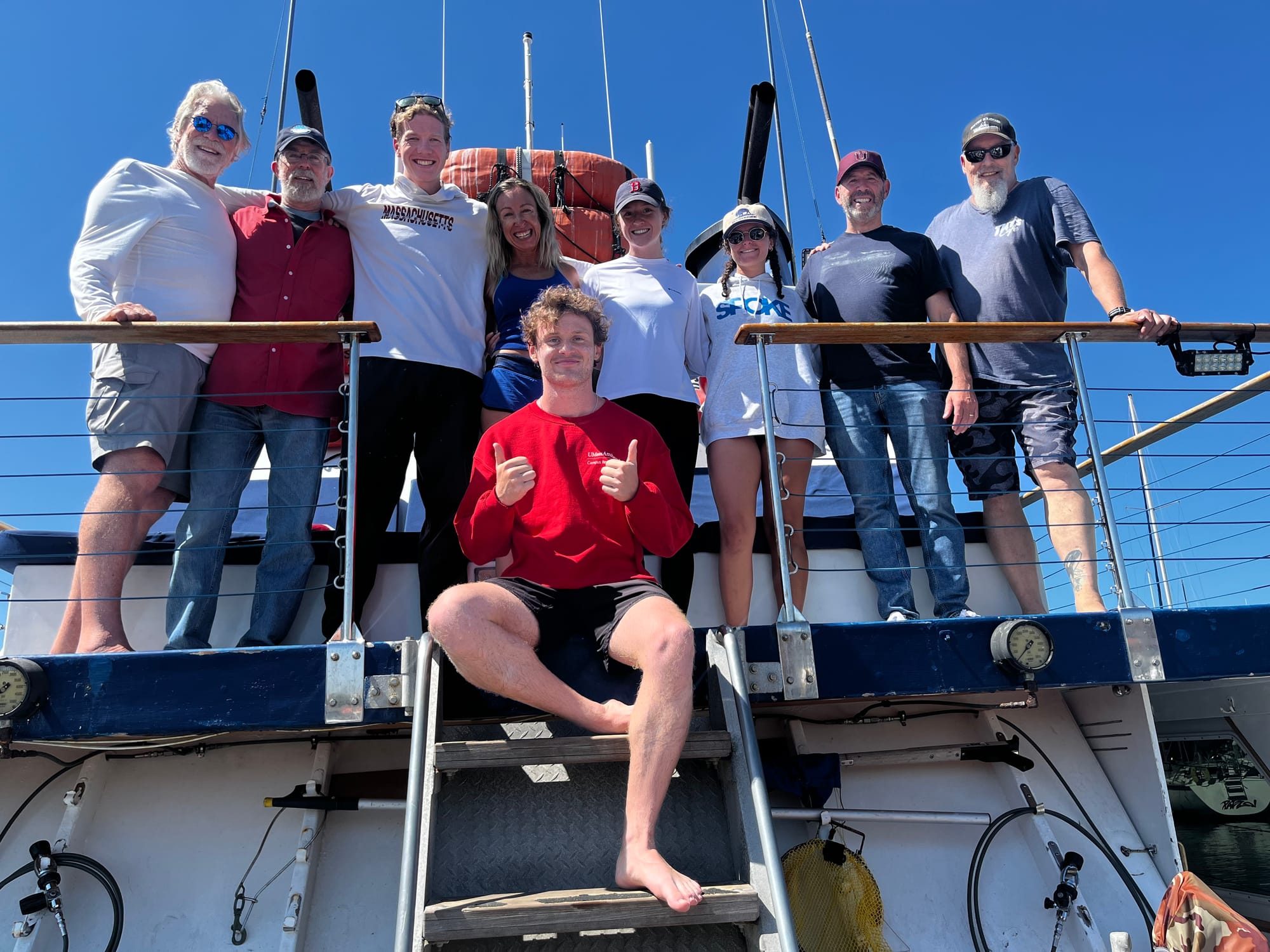
‘It’s just complete darkness’
The Catalina Channel presents different obstacles. Swimmers start at 10:30 p.m. to avoid strong afternoon winds, meaning five-plus hours in complete darkness.
“You’re 20 miles off the coast, 20 miles in the dark Pacific Ocean at midnight,” Bannon said. “It’s just complete darkness.”
Manhattan offers urban grit: 28.5 miles around the island navigating East River and Hudson River currents, with debris floating past. Bannon swam from 9 p.m. to 5 a.m., guided only by city lights reflecting off the water.
“I couldn’t see what was in the water, so I think that served my benefit,” he said.
Nutrition becomes critical during swims lasting 10 to 15 hours. Bannon consumes 250 calories every 30 minutes in liquid form — no solid food. His mouth swells from saltwater exposure, sometimes leaving him with a lisp for days afterward. He carries diluted mouthwash to rinse between feeds.
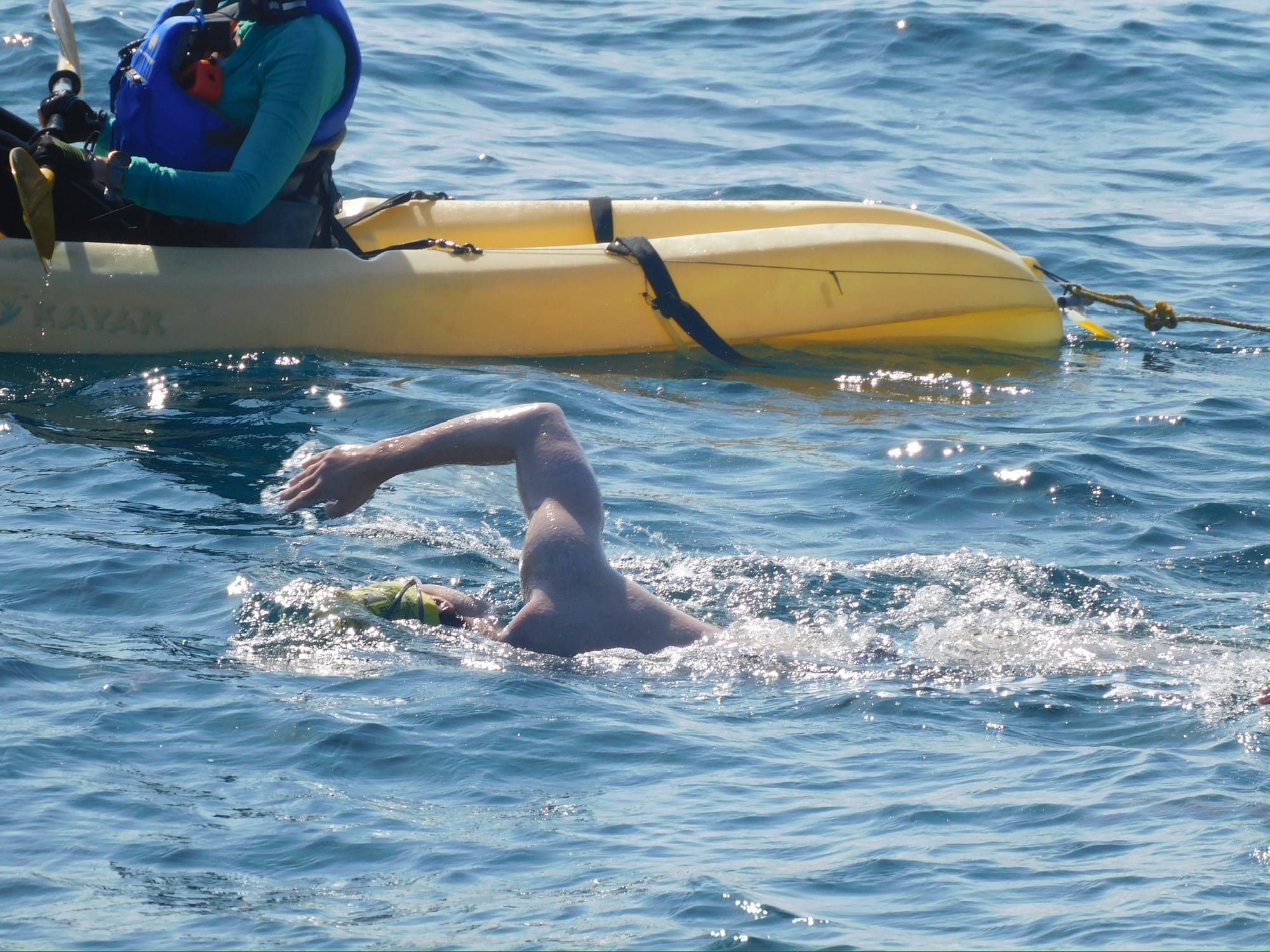
The mental challenge rivals the physical. Swimmers face sensory deprivation for hours: no music, no conversation, just rhythmic breathing and stroke after stroke.
“It can be a very peaceful, lovely place or the scariest place in the world,” Bannon said.
The middle of nowhere
Ten miles forward: no land.
Ten miles back: no land.
Just Bannon, suspended in a void where sky blends into sea and the horizon erases itself in mist. Below, jellyfish drift like ghosts. Their stings register as static, numbed by water so cold it doesn’t burn — it seeps. Into muscle. Into bone. Into thought.
“It’s not like a burning cold,” Bannon said. “It’s like a seep into your muscles and bones cold, so it messes with your brain and how you’re thinking.”
The ocean becomes a kind of forgetting. The body a vessel carrying one thought forward: 30 minutes. Just 30 more minutes until the next feed. Until warm sugar water crosses his lips and reminds him what warmth feels like.
“All you can think about is, ‘OK, you need to make it to the next 30 minutes where you get a little bit of warm sugar water,” he said.
The jellyfish, the cold, the nothing stretching 10 miles in every direction — all of it fades into background noise. What remains is the next stroke, and the next, and the promise of sweetness at the half-hour mark.
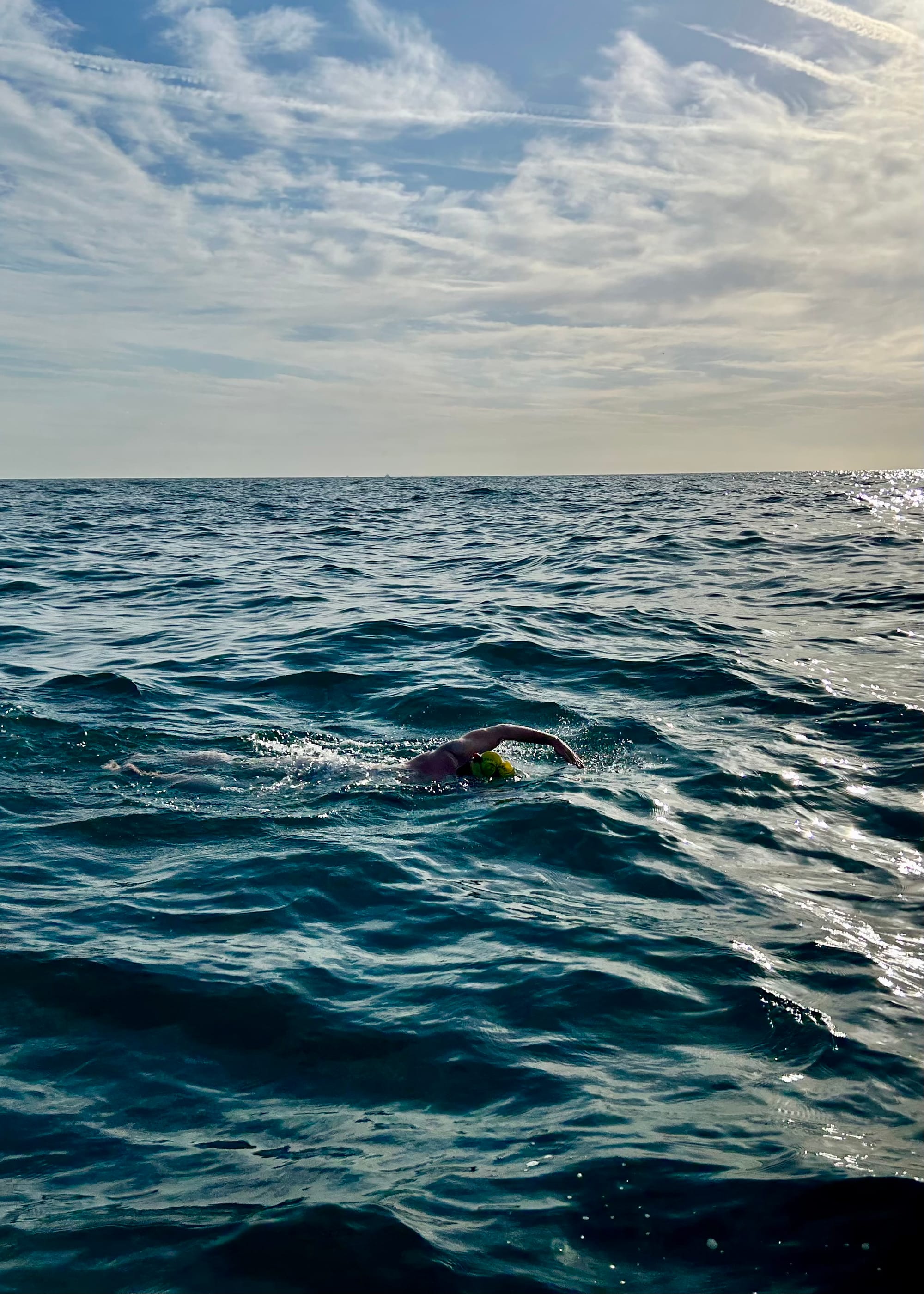
Purpose in the cold
He dedicated the English Channel swim to his godfather. His godfather had been paralyzed from the neck down since a car accident at 18.
“I always had that reminder of how much of a privilege it is to have a healthy and able body,” Bannon said.
For Catalina, he raised funds for Massachusetts General Hospital’s lifestyle medicine program and colorectal cancer center, where he now works as a clinical research coordinator.
Bannon’s path to marathon swimming started unexpectedly. He quit competitive swimming his senior year at Winchester High School, burned out and unmotivated. Then came COVID-19 and a restless 19-year-old looking for a challenge. He signed up for an Ironman triathlon.
“Made every mistake in the book,” he said.
No nutrition plan, no hydration strategy, no wetsuit. But he finished — sunburned and hurting — with a revelation: “I can do a lot more than I think I can.”
That Iron Man swim — 2.4 miles in 80-degree water — felt like eternity. Within months, he had booked the English Channel, requiring a two-year advance reservation. His longest swim would need to become 21 miles in 60-degree water.
“Again, a little over-ambitious,” he said.
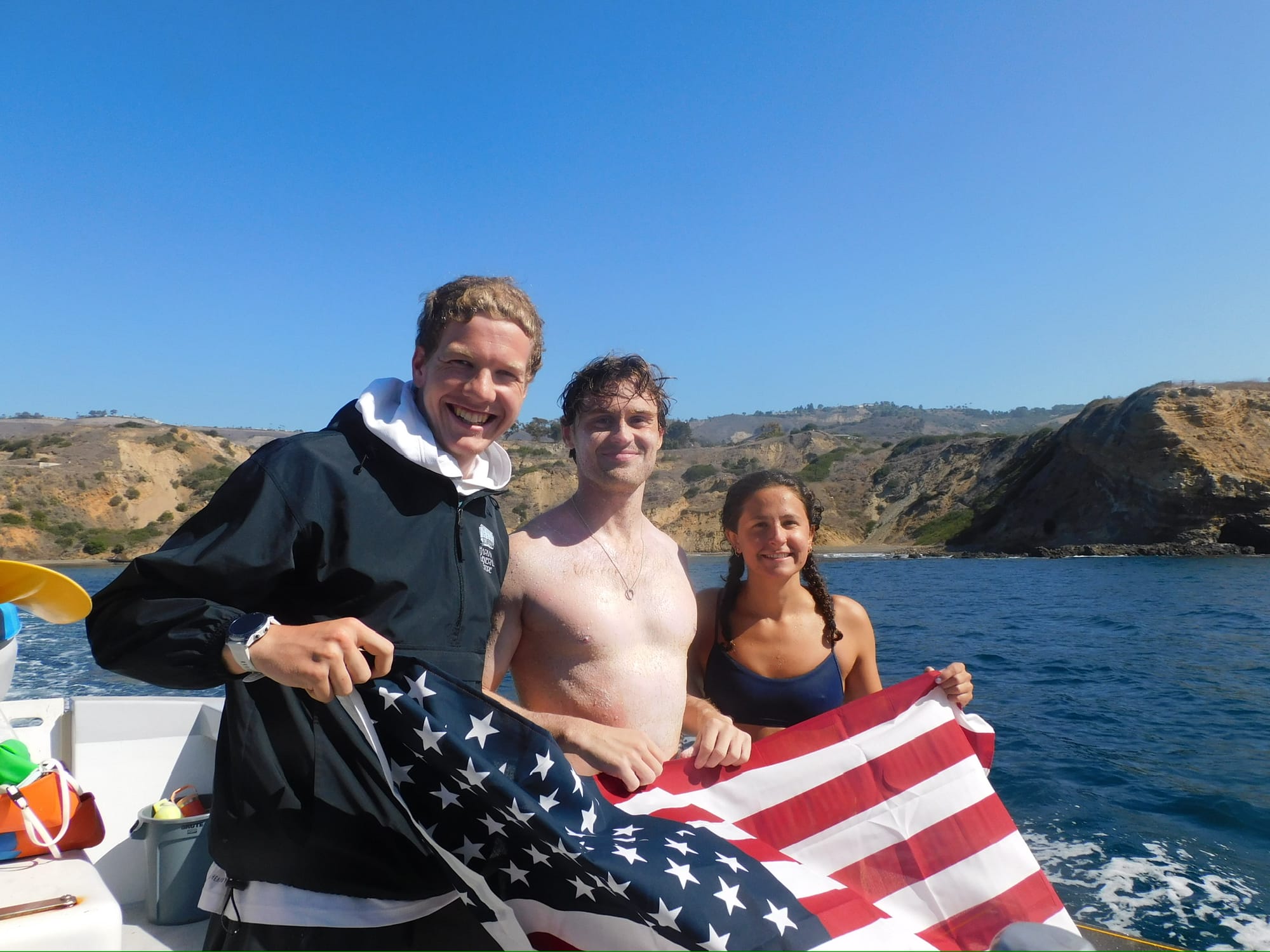
Bannon trained in Walden Pond and the Mystic Lakes, sometimes swimming through ice in 20-degree water. He learned his body would shiver violently for two hours before stabilizing.
He practices at Phillips Beach in Swampscott and Nahant Bay. His coach Craig Lewin, himself a Triple Crown finisher, taught him about warm feeds, grease application and how cravings change at hour 12.
His parents turned the English Channel into a family trip, though his mother stayed on land due to seasickness.
“If she gets seasick in the middle of this and needs medical attention, they’ll pull me out of the water,” he said.
Now he’s applying to medical school, drawn to the intersection of athletics and medicine after working with cancer patients at MGH. He sees young people his age diagnosed with early-onset colorectal cancer and feels the same urgency that drives him through cold water: use this healthy body to help others.
On Oct. 16, Bannon will speak at the Jenks Center at 7 p.m. for Swim Winchester, a group advocating for an indoor aquatics center in town. He’ll discuss his training, his goals and how swimming shaped his path to medicine.
For now, he’s one of fewer than 400 people worldwide in an exclusive club that offers no prize money, no trophy, just a name on a list and the knowledge that he swam farther than most people thought possible.
“You have the privilege and the awesome ability to do this feat that a handful of people in the world have done,” Bannon said. “It’s awesome.”
Will Dowd is a Massachusetts journalist who covers municipal government and community life for Winchester News. He previously co-founded the Marblehead Current and now runs The Marblehead Independent, a reader-funded digital newsroom.

